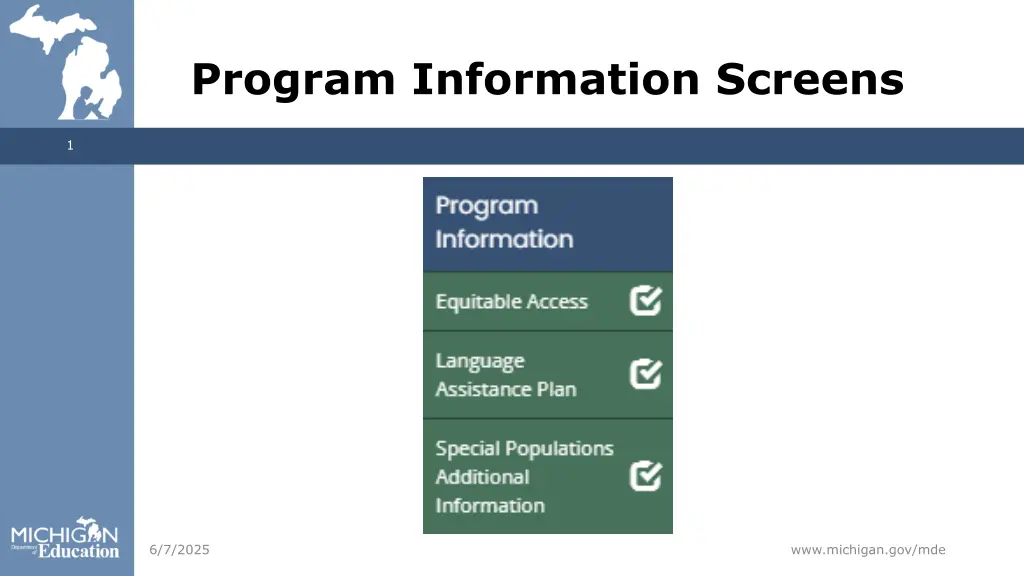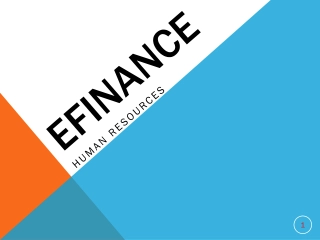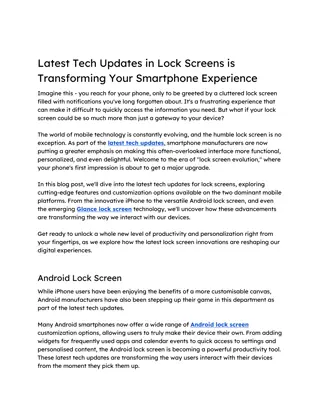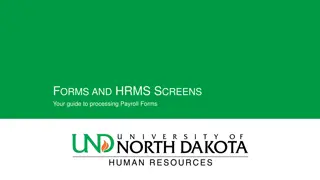
Based on the provided content, here are the requested items: "Equitable Access and Barrier Identification in Education Programs
"Explore equitable access barriers in education programs and learn how to address them for students, staff, and parents to ensure inclusive participation. Discover strategies and guidelines for overcoming various types of barriers like gender, race, disability, and age."
Download Presentation

Please find below an Image/Link to download the presentation.
The content on the website is provided AS IS for your information and personal use only. It may not be sold, licensed, or shared on other websites without obtaining consent from the author. If you encounter any issues during the download, it is possible that the publisher has removed the file from their server.
You are allowed to download the files provided on this website for personal or commercial use, subject to the condition that they are used lawfully. All files are the property of their respective owners.
The content on the website is provided AS IS for your information and personal use only. It may not be sold, licensed, or shared on other websites without obtaining consent from the author.
E N D
Presentation Transcript
Program Information Screens 1 6/7/2025 www.michigan.gov/mde
2 Equitable Access General Education Provisions Act (GEPA) Section 427 6/7/2025 www.michigan.gov/mde
Equitable Access Screen 3 Information requested on this screen applies to funding for all grant sources included in the Consolidated Application. Section 427 of the GEPA highlights six types of barriers that can impede equitable access or participation: gender, race, national origin, color, disability or age. 6/7/2025 www.michigan.gov/mde
Equitable Access Screen cont. 4 Based on local circumstances, applicants should determine how these barriers may prevent students, staff, parents and families, and other beneficiaries from accessing or participating in the federally-funded programs. Remember to review the website for additional guidance. 6/7/2025 www.michigan.gov/mde
Equitable Access 5 Guiding Questions: 1. Which of the six types of barriers exist with students, staff, parents, and families in the academic environment? 2. Which accommodations are provided to a person(s) so that those barriers do not prevent successful participation in the academic environment? 6/7/2025 www.michigan.gov/mde
Equitable Access Statements 6 Equitable Access statements for students, staff and parents should consist of specific explanations of the following: 1. Identification of a specific barrier or barriers to equitable participation 2. How the school district addresses the identified barrier to access and participate in Federally- funded programs 3. The local educational agency s proposed use of grant funds 6/7/2025 www.michigan.gov/mde
Equitable Access-Students 7 Common Types of Barriers for Students: Gender - Identity, stereotyping, bullying, clothing and dress, hair, policies and procedures Race, Color and National Origin - Discrimination, low expectations, stereotyping Disability - Assumptions about ability, low expectations and lack of understanding Age - Assumptions about ability based on being too young or over-aged 6/7/2025 www.michigan.gov/mde
Student Response 8 A Response might include - Our district will strengthen its district-wide Science, Technology, Engineering, and Math (STEM) initiative. We know that STEM-related classes tend to disproportionally attract boys. Therefore, we are implementing outreach strategies to encourage more girls to participate in our STEM initiative. 6/7/2025 www.michigan.gov/mde
Equitable Access-Staff 9 Common Types of Barriers for Staff: Gender Stereotyping, job assignments, advancement opportunities Race, Color and National Origin Lack of diversity and advancement opportunities Disability Location of meetings, assignments, handicapped accessibility Age Policies and procedures, discrimination, hiring, firing, forced resignations, stereotyping of abilities 6/7/2025 www.michigan.gov/mde
Staff Response 10 A Response might include Our district will use grant funds to send staff to training to improve K-3 Early Literacy. Because some staff have disabilities that impede their ability to drive, we will provide transportation as needed to enable all staff the ability to get to off-site professional development opportunities at times beyond the school day. 6/7/2025 www.michigan.gov/mde
Equitable Access-Parents and Families 11 Common Types of Barriers for Parents and Families: Gender Lack of communication with noncustodial parent and extended families; policies and procedures Race, Color and National Origin Discrimination, language barriers, communication Disability Lack of transportation, handicapped accessibility Age Discrimination towards younger or older parents and grandparents; accessibility 6/7/2025 www.michigan.gov/mde
Parent Response 12 A Response might include Our district will host a parent and family night activity. A significant portion of our families are at or below the poverty level. Therefore, we will provide transportation, childcare, and a meal for families to attend the event. 6/7/2025 www.michigan.gov/mde
Let's Take A 10-Minute Break! 13 6/7/2025 www.michigan.gov/mde
14 Language Assistance Program (LAP) 6/7/2025 www.michigan.gov/mde
Language Assistance Program (LAP) 15 General Fund Requirement: All designated English Learner (EL) students have the right to supports provided by the Language Assistance Program (LAP). The LAP is required of all districts, and ISDs that are consortium leads. Title III supplemental funds are accessible to districts only after they have met this general fund requirement. 6/7/2025 www.michigan.gov/mde
Language Assistance Program 16 There are two main components of support for EL students that must be a part of Tier I instruction 1. Meaningful Access to the Core Curriculum 2. Direct English Language Development Instruction A preferred template is located on the Office of Educational Supports website under Programs, Title III - English Learner & Immigrant Education Programs website 6/7/2025 www.michigan.gov/mde
Language Assistance Program cont. 17 All local education agencies (LEAs) receiving any supplemental Federal funds are required to demonstrate how they are using general funds to support English Learners. LEAs that do not currently have English Learners, must also complete the template, so a plan is in place for new EL enrollees All LEAs must upload the template into their application. 6/7/2025 www.michigan.gov/mde
Language Assistance Program New Upload 18 New this year - The 2026 Consolidated Application will require an upload for the Language Assistance Program (LAP) description. All districts will need to create an upload for this area. The template can reflect the current 12 box version, or a version that the district has created that includes the following: 1. An intentional plan of support that is more intensive at earlier levels of proficiency and less intensive at higher levels of proficiency. (Section 41 required a minimum of 30 minutes daily for all ELs and an additional daily period for ELs with proficiency levels of 1.0-1.9) 2. Staffing hired to support the EL services and their funding sources
6/7/2025 www.michigan.gov/mde
20 Special Populations Additional Information 6/7/2025 www.michigan.gov/mde
Special Populations Additional Information 21 Section I Needs and Plans For Homeless Reservation Describe the identified needs for students experiencing homelessness that are being addressed with the Title I, Part A Homeless Reservation. Include a brief overview of the identified needs and what data was used for identification, also include how these funds will be used to address the needs. Should only describe the needs that will be supported with the Title I, Part A Homeless Reservation. These needs should mirror the items that are included in the Title I, Part A Homeless Reservation.
Special Populations Additional Information Section II 22 Section II Supporting Youth Experiencing Foster Care A. Are Title I, Part A funds being used to specifically address the needs of youth experiencing foster care? Mark YES only if the LEA is setting-aside Title I, Part A funds to support students in foster care. 6/7/2025 www.michigan.gov/mde
Special Populations Additional Information Section II cont. 23 B. If the answer to A was Yes, describe the identified needs for students experiencing foster care that are being addressed with the Title I, Part A funds. Include a brief overview of the identified needs and how these funds will be used to address the needs. Must ONLY describe the needs that will be supported with the Title I, Part A Foster Care Reservation. These needs should mirror the items that are included in the Title I, Part A Foster Care Reservation. If the LEA answered NO, this section must be left blank. 6/7/2025 www.michigan.gov/mde
Section III English Learner Supports 6/7/2025 www.michigan.gov/mde 24
Special Populations Additional Information Section III 25 Section III English Learner Supports A. Are general funds being used to specifically address the needs of English Learners? If YES, answer question III.B . If NO, answer question III.C. B. If the answer to III.A was YES, describe the supports provided for English Learner students that are being addressed with the general funds. Include a brief overview of the identified needs and how these funds will be used to address the needs. C. If the answer to III.A was NO, please note that no is only an acceptable answer if the LEA has no English Learners currently enrolled. If the answer to III.A is NO, describe how staff is prepared to screen potential students upon enrollment. 6/7/2025 www.michigan.gov/mde
Special Populations Additional Information Section III cont. 26 Section III English Learner Supports D. Describe the program focus and outcomes from the required EL Program Evaluation. The EL Program Evaluation must be kept on file and made available at the request of the department. This should serve as a comprehensive overview of your evaluation of the EL program, without extensive details. Tools to complete this process, as well as professional learning, are available at Webinars-EL Program Evaluation 2023-2024. 6/7/2025 www.michigan.gov/mde
Special Populations Contact Information 27 Contact Information Homeless Liaison Name must match what the district has entered in the Educational Entity Master (EEM). Must have completed the required McKinney-Vento training. Consultants will check this information for accuracy. Foster Care Liaison Name must match what the district has entered in the EEM. Consultants will check this information for accuracy. New this year English Learner Contact Person. 6/7/2025 www.michigan.gov/mde
Special Populations Additional Information-Foster Care 28 Foster Care Allowable Expenses: Supporting a portion of the Foster Care Liaison s salary (job description and FTE breakdown required as an upload in the Attachment section) Transportation to school of origin New this year - Allowable Expenses: Welfare Needs such as hygiene needs and clothing (FC 361) Academic Supports - including backpacks, school supplies, books, field trip costs, sports participation costs (FC 125) www.michigan.gov/mde






















